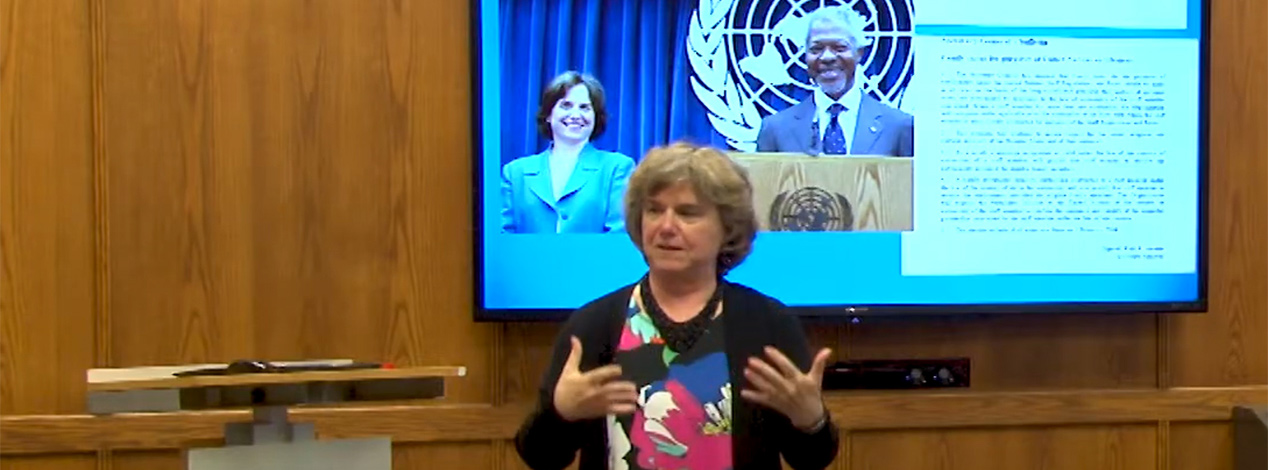Work for a Harmonious World
Conversations in Conflict Studies

Conversations in Conflict Studies is an educational speaker series for students, faculty and the community. The series, sponsored by PARCC, draws its speakers from Syracuse University faculty, national and international scholars and activists, and Ph.D. students.
Upcoming Conversations in Conflict Studies
February 19, 2026
Mandatory vs. Voluntary Corporate Social Responsibility
Eggers Hall, 400A
12:30PM-1:30PM
March 19, 2026
Conversations in Conflict Studies Presents Jess Myers
Eggers Hall, 400A
12:30PM-1:30PM
Past Conversations in Conflict Studies
The Power and Politics of Transformational Adaption in International Climate Finance
International climate finance is an integral part of the global climate policy regime, and many of the major climate funds are increasingly articulating their goals as catalyzing transformational adaptation. These institutions have significant power to determine what counts as transformation, and ultimately what types of adaptation are funded. This talk will unpack the power and politics of these funding decisions, with a focus on the Green Climate Fund (GCF).
“Problems without Passports” Climate-induced migration from a national security perspective
The focus of this conflict conversation is anticipating and limiting the conflict caused by mass managed retreat at the local level as communities attempt to assimilate an enormous new population.
"Constructive Conflicts Then and Now" with Louis Kriesberg and Bruce Dayton
Louis Kriesberg and Bruce W. Dayton discussed their history and projects on conflicts. These long time experts and co-authors of “Constructive Conflicts: From Emergence to Transformation” shared their experiences in working with many issues including conflict resolution, security issues and peace studies.
"(Re)Mobilizing the Masses: Civil Society & Social Change in the 21st Century" with Catherine Herrold
This presentation explores how contemporary youth mobilize for change outside of traditional NGOs and what the implications of these new mobilizing structures are for theory, policy, and practice. Long hailed as part and parcel of a vibrant civil society and well positioned to promote social justice, economic development, and democracy, NGOs have more recently been accused of being at best co-opted by, and at worst willing pawns of, international donors and national governing regimes.
"The Epidemiological Context of the Affordable Housing Crisis" with Matthew McLeskey
Broadly speaking, Matthew’s research program focuses on the relationship between environmental crimes and harms and social inequalities, particularly how America’s lead poisoning epidemic caused by dilapidated housing in segregated neighborhoods impacts the well-being of families and contributes to the school-to-prison pipeline.
Identity and Nonviolent Action: How ‘Who We Are’ Matters in Resistance
Anya Stanger began her research on some of America's most committed nonviolent activists here in Central New York. In this talk, she discusses the strategy of prison witnesses (going to jail for 6 months or more as a result of nonviolent resistance) as a window into understanding not just contemporary nonviolent action, but also how such action is shaped by identity.
Colonialism, Hurricanes, and the US Military: Civil Society to the Rescue in Vieques, Puerto Rico
Mark has been engaged with sustainability and regenerative community engagements throughout the Caribbean, Central and South America, and the US. He is involved with post-disaster issues, testifying to the US Congress in 2017 about hurricane response in Puerto Rico.
The Spiral of Personal Conflict with Neal Powless
Since becoming the University Ombuds over three years ago, Neal has been saying “Conflict is not a sign of failure. Conflict is an opportunity to learn more about yourself and the people you work with.” The Spiral of Personal Conflict acknowledges an individual process of managing conflict that has been influenced directly by observations in his work as well as psychology, media, Eastern and Indigenous theories and concepts.